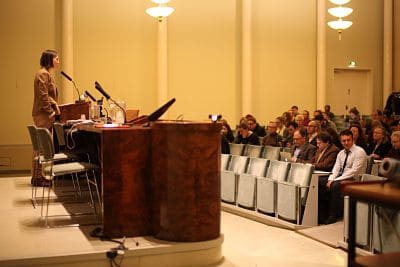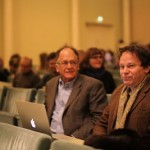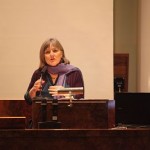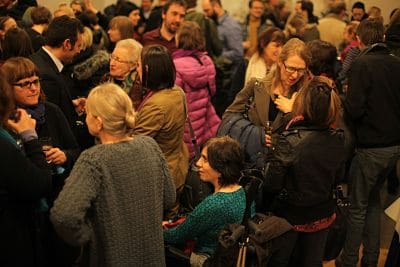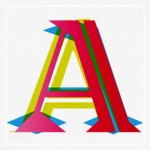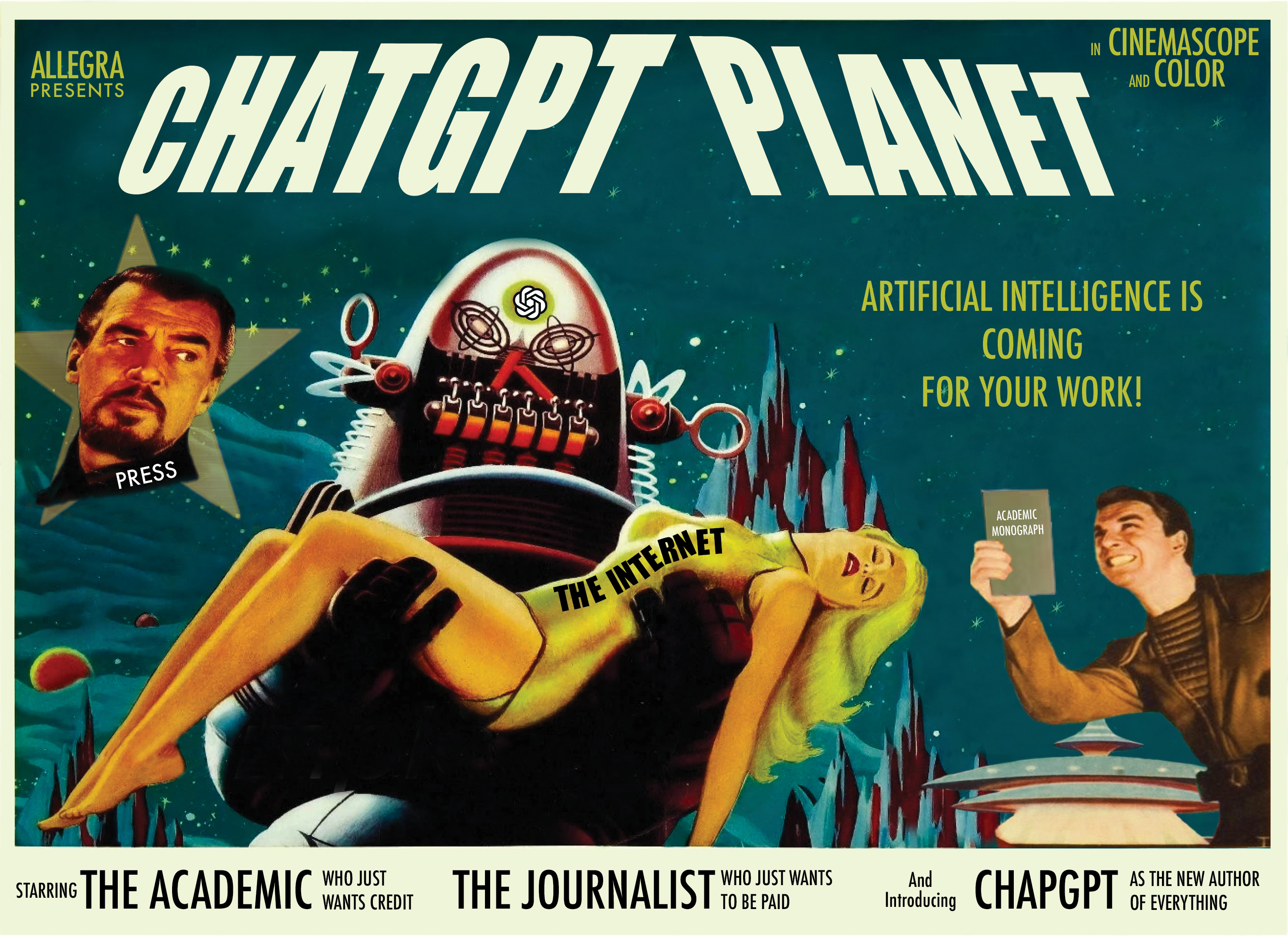By MHT
As we have made overwhelmingly clear, last Wednesday marked an important date in the anthropological calendar for 2014, namely the Anthropological Knots seminar organized in Helsinki with the collaboration of HAU: Journal for Ethnographic Theory. As we have also mentioned, we will follow-up soon with videoed best hits of talks from Marilyn Strathern, Chris Gregory, Matthew Carrithers, David Graeber and more.
However, while the videos are being fine-tuned on the editing table, we want to continue our discussion of the event, this time by re-visiting some rather intense social media action taking place during the event, namely our Twitter coverage of the event with the hashtag #anthroknots. We launched this hashtag some week or so prior to the event, continued circulating it in Knots related posts before the grand date, and of course, kept it in rapid circulation during.
Just what was said – and what was Tweeting like?! Below some rather flee flowing thoughts – accompanied by atmospheric photo souvenirs of the event’s unfolding courtesy of Juho Reinikainen, our man behind both these still images and the video footage to come soon!
We want to share our Tweeting experiences in our road of continual experiments (remember, Allegra is a lab after all!) over how the social media can be useful in filling the ‘DEAD SPACE’ that we have judged to exist in between academic discussions occurring today, and the eventual scholarly publications that will commonly appear in anything between one and many years.
There currently exists nothing more current than Twitter: each Tweet becomes public – is published – instantly as its author pushes the appropriate button, thus allowing it to reach whoever happens to be following the Tweet account in question. How do these two publishing modes, in many ways the opposites of each other, work together? What kind of contributions can Tweeting offer to an academic event?
To many – and admittedly until very recently, to us too – the entire Twitter business (meaning in this instance figuratively rather than in concrete, financial terms!) is quite foreign. We’ll follow up with a closer introduction soon, but just so that we get the basics right: Twitter functions around messages of 160 characters that can be retrieved from Twitter’s site. Each user can choose the accounts they follow, resulting for many hardcore users thousand(s) of accounts that spit out a plethora of messages each minute, fed conveniently into their smart phones in a non-stop stream.
To connect these general findings to tweeting at Knots, the experience was both enjoyable but also intimidating, to say the least. Tweeting (on/of) talks by world-renown authors on topics outside of one’s primary realms of anthropological expertise – in a conference widely attended to by one’s colleagues – is certainly an invitation for cold feet. Will one catch just the right quotes, will one manage to get the inevitable paraphrasing right?! The 160 character limit of Twitter is not exactly friendly to elaborate academic arguments! Will one manage to continue staying on top of the flow of discussion while actually writing the clever & funky Tweets themselves? Will one get grammar & spelling right?!!
In many ways conference tweeting feels thus a bit like boarding another fast-moving train (remember our imagery from our ‘Savage European’ experiences from the AAA). If one has any sense of self-preservation, one hesitates to hop on!
Yet, once one takes that leap, things started looking up! From a purely selfish point, having a tweet account to worry about really functions as an effective medium for making sure that one pays attention – there simply is no room for revering (of the wrong kind). And fast paced action forms also a wonderful tool for fast processing of what is discussed; and the fact that all of this processing occurs in public offered quite the useful boost to the good ol’ motivation to push oneself to really focus on this too!
There is also something wonderful and slightly bizarre about reading a chain of tweets removed from their context in retrospect. These isolated quotes bring back thoughts that time has already buried, and evoke new ones not even intended by the speakers at the time. Thus reading a chain of Tweets ‘after the fact’ highlights at least one undisputed way in which Tweeting complements one standards feature of academic work: the catch phrase, the slogan, the juicy quote. For were these not captured live, there is a threat that many of the freshest metaphors would either vanish – or grow stale – somewhere in between the action today and the eventual publication in the years to come. Thus adding this layer of ‘the now’ pays actually tribute to many of the most enviable characteristics of exciting academics: their ability to ‘spark’ in the moment from spontaneous stimulus, be it a clever audience comment, or the inevitable technical shortcoming. Capturing all this via twitter serves thus an integral function of reinstating the ‘human’ in scholarly exchanges that is too often absent from standard publishing formats.
‘Tweeting Knots’ came also with the evident advantage of allowing the action occurring on the spot to transgress any narrow borders of the conference venues. And whereas we – the ‘older generation’ of academics – may have been a tad slow in taking advantage of this feature in particular, the same can hardly be said for clever & demanding university students, particularly in the US, who seem to be taking full advantage of this option – Twitter action around the hashtag #anthropology on the first day of the new US university term in early January was quite intense indeed, with comments both in favour and against new anthropology courses pouring in.
Which opens up yet another perspective to Tweeting: the viewpoint of the speaker. For while amongst colleagues one can expect a certain level of courtesy – after all, this remains, or should be seen, as merely an extension of academic discussions occurring through more traditional media (and as you can see from the Tweets below, Allegra also made sure to adhere to the most rigorous standards of scholarly respect, with only slight tongue-in-cheek action visible in regards to David Graeber’s assumed belief in Santa Claus!) – the same certainly doesn’t apply in between teachers and students. Since attempts to bloc all internet connected apparatuses from classrooms seem both doomed and ill-placed, the opportunity to Tweet cannot but be accepted as a lasting feature of classrooms today. Why not embrace this reality then – see it as added motivation to make classes even more exciting, with the hopes of stimulating positive tweeting (or is this mere utopian banter?)!
To conclude this free flow of thoughts, the experiments of this Twitterer suggest that instead of a stranger, not to mention an enemy, Twitter alike other social media should be seen as a friend that, when properly used, holds great potential as a tool for advancing academic analysis, not to mention allowing ongoing scholarly discussions further visibility, and why not even societal relevance (and if we didn’t take these options seriously, why would we be bothering with Allegra either!).
And if you are still not convinced, then just remember the old wisdom of keeping your friends close and your enemies even closer. Either way – let’s just get properly online already!
Below for your enjoyment & inspiration best hits of Allegra’s ‘Knots’ tweets, the full record of which is available here. See for yourselves just what kind of images the metaphor of Knots inspired! (And as a reading tip: each line entails one individual Tweet):
Internet connections FINALLY established!
And just in time for first audience questions after the speeches of Marilyn Strathern and Jeanette Edwards
“Sarah Green on Marilyn Strathern’s paper: “As usual, it feels like five papers tied to one””
“Modern technology is AMAZING! Currently watching ‘power-pointed’ cartoon while Matthew Carrithers explains it via Skype”
“Watching a skyped paper is either ‘the new black’ or the beginning of the end… The jokes work though – Matthew Carrithers at #anthroknots”
“Audience in stitches over technical hassles as Nico Besnier begins his comments”
“Irony presupposes a kind of intentionality” Nico Besnier on Matthew Carrithers
“Can one write with the awareness that our ideology of language is not just about organizing people’s complex worlds?” Nico Besnier
“Our publishing venues create narrower language of ideologies than our original contributions” Matthew Carrithers
“You can hear me, but not understand me?” “It is always the problem” – challenges of the skyped presentation
Attempting to tweet on the ironies of subtext of thick description is impossible in 160 characters!
“We need MORE confused people rather than the opposite; irony is a more complex way of understanding the world” Carrithers
The inevitable Alanis Morrisette comes up: “The only irony of the song Ironic is that there is no irony”; discussion at #anthroknots
Technological hassles have audience in recurring stitches – the skyped talk might be the new black after all!
NOW: Chris Gregory & “On the severance of indissoluble bond between economy and religion and dehumanisation of anthropology”,
“How should we re-humanize anthropology in our post-humanist times?” Chris Gregory
Lunch break has obviously invigorated Chris Gregory – this tweeter struggles to keep up!
“Homo economicus is the high priest of free market; collective agency of this god transforms self-interest into public good” Gregory
“Economic anthropology was founded on the rejection of the homo economics” Chris Gregory
This is one talk I am GLAD we are videoing – tons of great insights at a bedazzling pace! Chris Gregory
Think got it right: “future anthropology must be an ethics of possibility grounded in positive probability” Chris Gregory
“If profit is reward for facing uncertainty, who pays the reward” (doing this live- imagine what all is missing!) Gregory
Sorry – no better summary: “human hypothesis – generalize – anthropologist – disagreement – fundamental assumptios” Gregory
“This paper is a tour de force. I feel daunted to respond with something more than strong affirmation” Joel Robbins on Gregory
“Now plutonomy is where the action is” Joel Robbins on Chris Gregory
“Is the best way for anthropological intervention to focus on the notion that theory always reflects some viewpoint?” Robbins
HAU’s Giovanni da Col makes a great point: today everything can be about economy, why this obsession? On Chris Gregory
“Why do you think that agency of ‘things’ takes away agency of people as if a zero sum game?” Question to Chris Gregory
“I am critical of notions of agency such as invisible hand; question is to de-mystify, not give in to double-bind” C Gregory
David Graeber is released – so far nothing has been occupied! Paper talks of rising managerial class of academics
So far setting the scene for global financial crises & talking of collective imageries of middle-classness
graeber: “if you see a policeman and feel safer, then you are middle-class”
“What has changed is the tradition/ideal of the university as a certain kind of place creating values to/by itself” Graeber
“Why did vulgar Foucauldianism become popular in 80s? Represents universalization of a particular class experience” Graeber
How did ‘postmodern challenge’ transform anthropology? It gave people afraid of it an easy way to dismiss it.” Graeber
Talking of which… While David Graeber speaks of managerial academics, Sussex faces another strike. http://fb.me/6E1dnXBrM
“People who experience lots of suffering do not reminders of it, they are already aware of their experience” Graeber
“Here I will actually introduce a Knots-metaphor!” (Here’s waiting…)
“When you need to remember something, tie a knot in your hair. Everyone reminds you of the thing & everyone’s importance” Graeber
It sounds somehow bizarrely that David Graeber would still like to believe in Santa Claus
Looking forward to Jane Cowan’s comments – written before @davidgraeber finally provided her the paper;
David Graeber also intervenes in another classical anthropological way, through ethnography.” Jane Cowan
“It is remarkable how little effort university managers have directed at persuasion, how much at coercion.” Jane Cowan
“We begin to see knots: even when we do not accept the morality of procedures, their legal ramifications entangle us” Cowan
“The idea of knots is relevant to knowledge production when seeking for funds requires significant re-conceptualisation’ Cowan



